24 October 2024
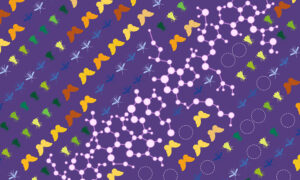
Employing a library of more than 1,000 chemicals, EMBL researchers and collaborators investigated how agrochemicals affect insect populations.
SCIENCE & TECHNOLOGY
13 September 2024
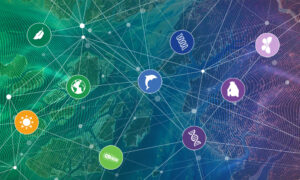
EMBL-EBI data resources help advance biodiversity and climate change research by enabling scientists to study species interactions, evolutionary processes, ecosystem health, and more.
SCIENCE & TECHNOLOGY
2024
science-technologytechnology-and-innovation
9 January 2024
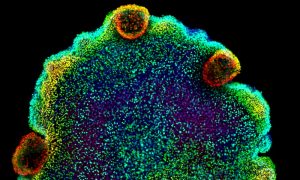
A $3.8 million grant from the Gordon and Betty Moore Foundation will help researchers lay groundwork for the Biodiversity Cell Atlas.
29 November 2023
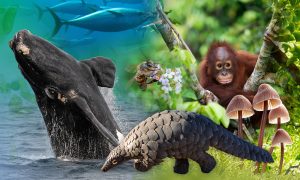
The new initiative brings together genomic data from various biodiversity projects to aid conservation and biodiversity efforts.
SCIENCE & TECHNOLOGY
2023
announcementssciencescience-technology
6 April 2023
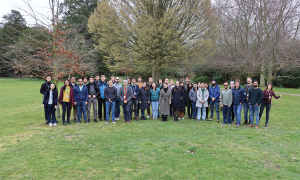
Darwin Tree of Life project improves bioinformatics tools for biodiversity data analysis
CONNECTIONS
2023
connectionstechnology-and-innovation
21 March 2023
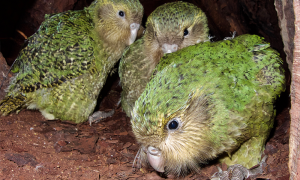
Using long-read sequencing and machine learning approaches, EMBL alumna Lara Urban is making a difference in the field of One Health.
6 March 2023
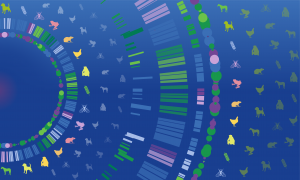
As major biodiversity projects ramp up, EMBL-EBI enables genomic data sharing for all species.
25 January 2023
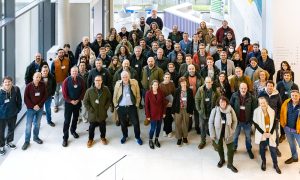
EMBL hosts inaugural meeting for major interdisciplinary project designed to boost understanding of ocean life
CONNECTIONSLAB MATTERS
2023
connectionslab-matters
16 January 2023
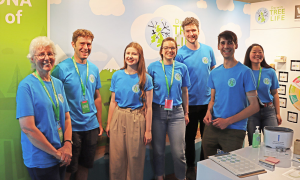
We look back through some of the 2022 highlights from the Darwin Tree of Life project.
SCIENCE & TECHNOLOGY
2023
perspectivessciencescience-technology
20 December 2022
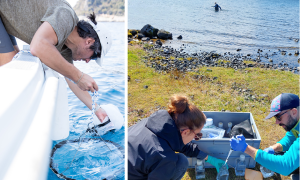
Europe-wide project studies coastal and marine biodiversity from viruses to whales
CONNECTIONSLAB MATTERS
2022
connectionslab-matters
11 November 2022

Our experts discuss the importance of open science for food security and preserving global biodiversity.
4 October 2022
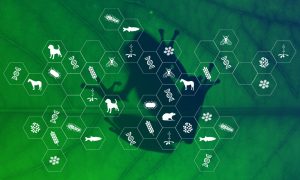
European experts gather to launch a project that aims to characterise and conserve life on Earth using DNA data.
2022
announcementsscience
14 July 2022
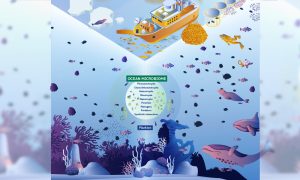
Microbial communities play essential roles in ocean ecology and planetary health. A recent publication highlights priorities for understanding and protecting ocean microbiomes.
SCIENCE & TECHNOLOGY
2022
sciencescience-technology
20 June 2022
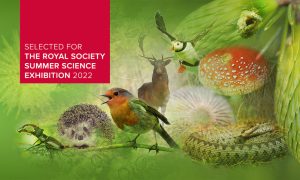
A closer look at how genome sequencing is helping us protect biodiversity and our latest public engagement activities
31 May 2022
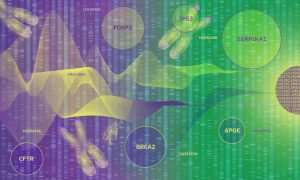
Researchers in the Ensembl team are making the most of machine learning methods to speed up genome annotation pipelines
SCIENCE & TECHNOLOGY
2022
sciencescience-technologytechnology-and-innovation
17 March 2022
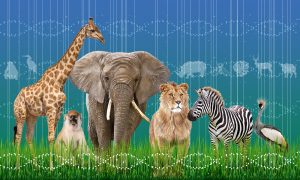
The African BioGenome Project aims to safeguard biodiversity and build bioinformatics capacity across Africa
SCIENCE & TECHNOLOGY
2022
perspectivessciencescience-technology
23 February 2022
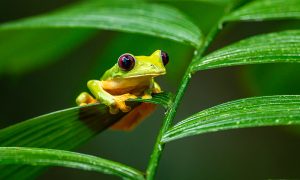
Scientists urge the adoption of a sensible international policy for digital sequence information.
SCIENCE & TECHNOLOGY
2022
announcementssciencescience-technology
24 January 2022

An exploration of where in the world genomics methods are applied and where the data are used.
SCIENCE & TECHNOLOGY
2022
perspectivessciencescience-technology
21 January 2022
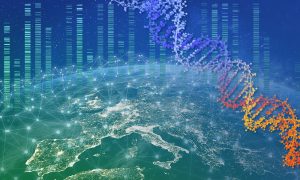
On track to reach an ambitious goal of 3,000 genomes sequenced by the end of 2022, what’s next for the Earth Biogenome Project?
SCIENCE & TECHNOLOGY
2022
announcementssciencescience-technology
19 January 2022
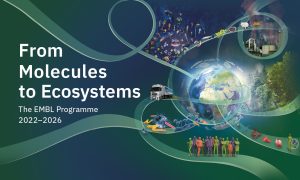
EMBL announces details about its next programme, ‘Molecules to Ecosystems’. It will guide studying life across scales and in context with changing environments.
EMBL ANNOUNCEMENTSLAB MATTERS
2022
announcementsembl-announcementslab-matters
17 December 2021
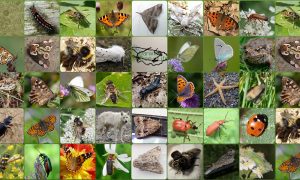
A look back at some of the 2021 highlights from the Darwin Tree of Life partner institutes.
SCIENCE & TECHNOLOGY
2021
sciencescience-technology
15 December 2021
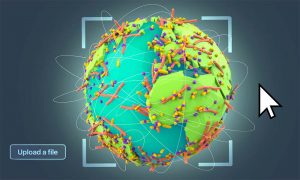
Bork Group at EMBL Heidelberg analysed a new global gene database to study how genes emerge and spread across various habitats on our planet. In the future, the group will expand the database and use it for studying microbial gene evolution and dispersal at a finer-grained scale.
SCIENCE & TECHNOLOGY
2021
sciencescience-technology
15 November 2021
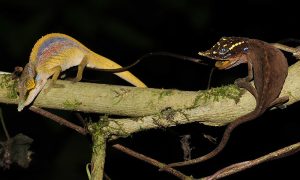
An alumnus reflects on the reptile database he started in 1996 while at EMBL. The database helps understand biodiversity issues.
SCIENCE & TECHNOLOGY
2021
alumniscience-technology
13 November 2021
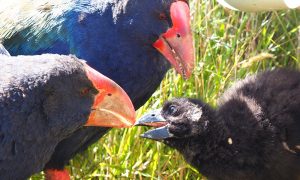
EMBL alum Lara Urban has developed mobile DNA approaches to monitor impacts upon biodiversity in remote areas of New Zealand and elsewhere.
SCIENCE & TECHNOLOGY
2021
alumniscience-technology
26 October 2021
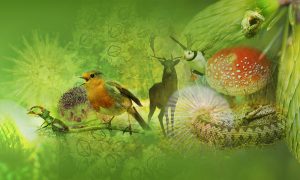
The Darwin Tree of Life project is an unprecedented initiative sequencing 70,000 species
SCIENCE & TECHNOLOGY
2021
sciencescience-technology
3 June 2021

Under the innovative Planetary Biology research theme, EMBL scientists aim to understand life in the context of its environment.
SCIENCE & TECHNOLOGY
2021
sciencescience-technology
30 April 2021
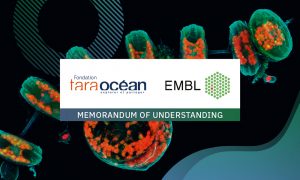
The EMBL-Tara Ocean Foundation collaboration will expand opportunities to jointly explore molecular connections between ocean and humankind.
EMBL ANNOUNCEMENTSLAB MATTERS
2021
embl-announcementslab-matters
11 February 2021
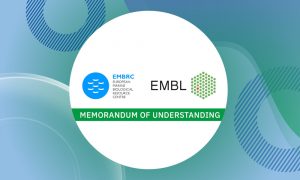
EMBL and EMBRC have signed a memorandum of understanding for increased scientific collaboration.
CONNECTIONSLAB MATTERS
2021
connectionslab-matters
22 December 2020
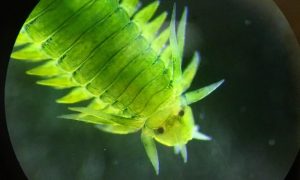
Despite restrictions, 2020 has been a busy year for the Darwin Tree of Life Project. We take a look at some of this year’s achievements and highlights.
SCIENCE & TECHNOLOGY
2020
sciencescience-technology
25 November 2020

At EMBL’s Science and Society conference, Ugandan campaigner Vanessa Nakate spoke about the need to take action on climate change.
PEOPLE & PERSPECTIVES
2020
eventspeople-perspectives
23 November 2020
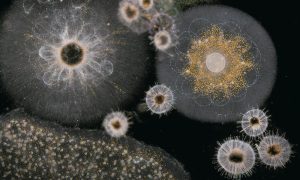
Microbiomes, plastics, and connectivity – AtlantECO aims to understand the fabric of the Atlantic Ocean.
CONNECTIONS
24 September 2020

EMBL’s 21st Science and Society Conference will address scientific and societal responses to mass extinctions. Ahead of his keynote speech, renowned palaeontologist Mike Benton explains how looking into the deep past can give us vital insights into the future of life on Earth.
SCIENCE & TECHNOLOGY
2020
eventsscience-technology
26 June 2019
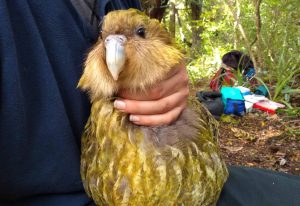
Using genomics to help endangered species
SCIENCE & TECHNOLOGY
2019
sciencescience-technology
26 April 2019
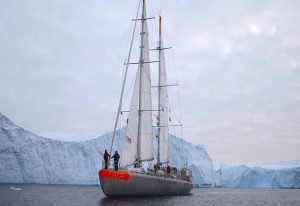
Results from the Tara Oceans expedition reveal the Arctic Ocean as a cradle of viral biodiversity
SCIENCE & TECHNOLOGY
2019
sciencescience-technology
1 August 2018
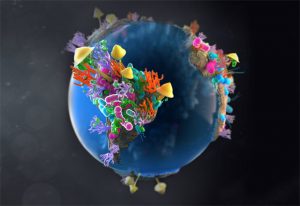
First global survey of soil genomics reveals a war between fungi and bacteria
SCIENCE & TECHNOLOGY
2018
sciencescience-technology
3 November 2017
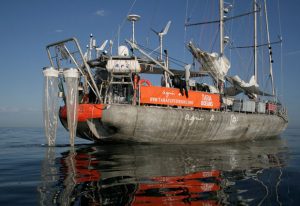
A talent for organisation has taken EMBL’s Steffi Kandels-Lewis across the globe
SCIENCE & TECHNOLOGY
2017
sciencescience-technology
20 October 2016

Participants learn about EMBL’s ocean biodiversity research at the Fall Gala
CONNECTIONS
1 October 2015
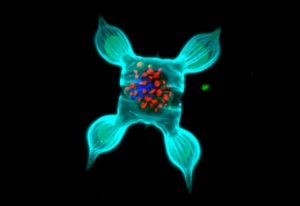
From the role of diatoms to how life evolved - scientists' pressing questions about life in the sea.
SCIENCE & TECHNOLOGY
2015
sciencescience-technology
21 June 2014
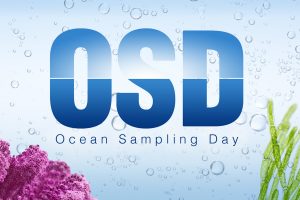
Data from first ever worldwide Ocean Sampling Day will be shared via EMBL-EBI resources this autumn.
SCIENCE & TECHNOLOGY
2014
sciencescience-technology
21 April 2005
Instead of sequencing the genome of one organism, why not sequence a drop of sea water, a gram of farm soil or even a sunken whale skeleton? Scientists at the European Molecular Biology Laboratory (EMBL) in Heidelberg and their US collaborators have done just that, and the result is a new…
SCIENCE & TECHNOLOGY
2005
sciencescience-technology
No results found




































